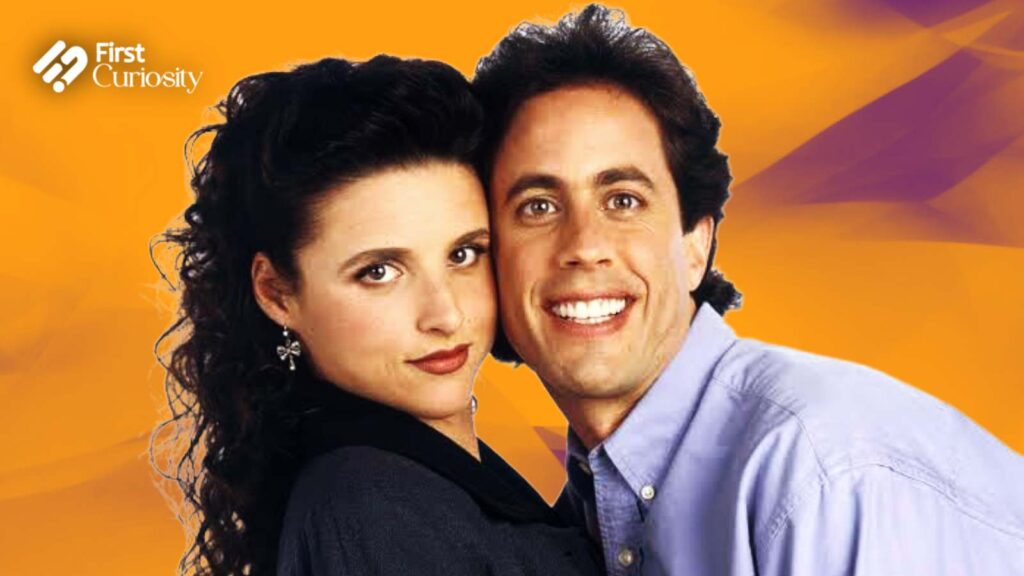The worlds of comedy and political correctness have been locked in a seemingly never-ending battle. Recently, this clash took on a familiar face when Julia Louis-Dreyfus, the iconic Elaine Benes from Seinfeld, publicly disagreed with her former co-star, Jerry Seinfeld, on the issue.
Additionally, comedy is a reflection of the times. As society evolves, so too must humor. The ‘Seinfeld’ brand of comedy, while iconic, may not translate perfectly to the current cultural climate. This doesn’t mean there’s no place for edgy or observational humor. However, it does highlight a shift in focus.
Julia Louis-Dreyfus Defends Sensitivity As “Not a Bad Thing” After Jerry Seinfeld Blames “PC Crap” For Running Comedy

In a recent interview, Seinfeld lamented the state of network television comedies, blaming a stifling atmosphere created by “political correctness” or “PC culture.” He argued that comedians can no longer take risks or push boundaries for fear of offending someone. Additionally, this viewpoint struck a chord with some who feel comedy has become overly sanitized and afraid to tackle sensitive topics.
However, Louis-Dreyfus took a different stance. In an interview with The New York Times, she countered Seinfeld’s argument, stating “My feeling about all of it is that political correctness, insofar as it equates to tolerance, is obviously fantastic.” She acknowledges the importance of “having an antenna about sensitivities” and argues that it doesn’t have to stifle creativity.
In case you missed it: Jerry Seinfeld Addresses Dave Chappelle’s SNL Monologue On Kanye West
Is There Room For Old Comedy Amid Cultural Shift?

Julia’s comments highlight the delicate dance between comedy and respect. Great comedy can challenge societal norms and make us laugh at ourselves. However, it shouldn’t come at the expense of punching down marginalized groups of people.
Finding humor in everyday situations and human foibles is the heart of good comedy, and that doesn’t have to disappear in a more sensitive cultural landscape. Perhaps the answer lies not in choosing sides, but in acknowledging there’s room for different approaches to comedy.
Seinfeld’s brand of observational humor often thrived on social awkwardness and pushing boundaries. This style might not resonate as strongly in today’s more aware society. On the other hand, comedians who find humor in relatable situations and witty dialogue can still deliver side-splitting content without resorting to offensive stereotypes. There’s a vast comedic landscape, and audiences can choose the humor that speaks to them.
You might like to read:





